Travel scams are a traveling fact of life. Traveling is one of life’s greatest joys—new places, new cultures, and unforgettable experiences. But while you’re busy soaking in the adventure, scammers are working just as hard to catch you off guard.
The truth? Travel scams are evolving, getting more sophisticated along with increasingly sophisticated technology, especially with regard to AI. And some are so sneaky you won’t believe they exist!
Whether you’re a seasoned traveler or planning your first big trip, knowing what to watch out for can save you from unexpected stress and lost money.
From high-tech frauds to classic tricks with a modern twist, these scams aren’t just happening in faraway places. Even the most popular tourist destinations have their fair share of traps.
So, before you book that flight or check into your hotel, here are 12 shocking travel scams that every traveler needs to know—because staying informed is your best defense.
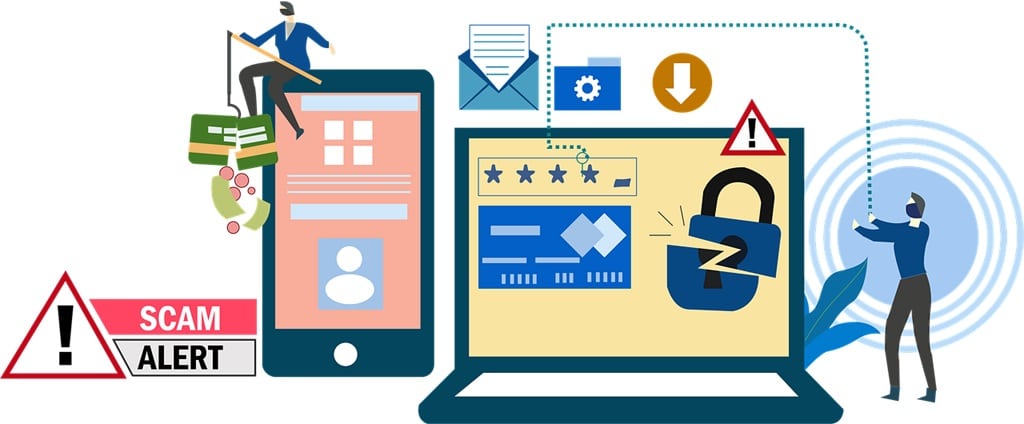
Table of Contents
ToggleHigh-tech travel scams
AI-Generated Fake Booking Confirmations
Imagine this—you book a flight, hotel, or rental car online, receive a confirmation email with all the details, and feel good knowing your trip is set.
But when you arrive, you’re told your booking doesn’t exist. What happened? You’ve just fallen for the most sophisticated travel scams: AI-generated fake booking confirmations.
Scammers are using AI to clone legitimate travel websites, generate fake reservation numbers, and even send confirmation emails that look identical to the real thing.
These emails include logos, booking details, and even links that redirect to fraudulent customer service chatbots, making it almost impossible to spot the scam until it’s too late.
To protect yourself, always book through verified platforms, double-check reservations directly with hotels or airlines, and avoid clicking on links from unsolicited emails.
If a deal looks too good to be true, it probably is. Scammers aren’t just tricking you—they’re making their scams look 100% real.
Deepfake Tour Guides Scamming Tourists
Tour guides have always been a key part of travel, helping visitors discover hidden gems and learn about local culture. But scammers have taken things to another level with deepfake tour guides—and travelers are falling for it.
Using AI-generated realistic videos, voices, and even fake credentials, scammers pose as highly rated tour guides, offering exclusive experiences at a fraction of the usual price.
Travelers book their tours online, only to arrive at a fake meeting point with no guide in sight. Worse, some scammers show up in person, take money upfront, and vanish before the tour even begins.
To stay safe, only book tours through verified platforms, check multiple sources for reviews, and be wary of offers that seem unrealistically cheap.
If a guide asks for full payment in cash upfront, consider it a red flag, because some tour guides may not even be real.
QR Code Payment Scams at Tourist Spots
QR codes have made travel easier—scan to pay for museum tickets, transportation, or even food. But scammers are taking advantage of this convenience by placing fake QR codes in public places, leading travelers to fraudulent payment portals.

You might scan a QR code for train tickets, thinking you’re on the official website, but instead, you’re giving your payment details directly to scammers.
These fake sites look identical to the real ones, so by the time you realize what happened, your bank account is already compromised.
To avoid falling victim, never scan random QR codes in public spaces, especially on posters, tables, or ticket booths.
Instead, manually type in the official website URL or use a verified app. If a QR code looks like it’s been pasted over an existing one, that’s a major warning sign—because one quick scan could cost you more than you think.
Smart Luggage Hacking & Location Tracking Travel Scams
Smart luggage is a traveler’s best friend—smart luggage is a new wave of travel gear designed with built-in USB chargers, GPS tracking, digital locks, and even motorized wheels that let you ride your suitcase like a scooter.
Sounds futuristic, right? But scammers have found ways to exploit these high-tech bags.
Some fraudsters sell counterfeit smart luggage at unbelievably low prices, only for travelers to discover their bags don’t charge, don’t track, or worse—contain hidden spyware that steals data when plugged into a device.
Scammers can also intercept Bluetooth or Wi-Fi signals from smart luggage, allowing them to track a traveler’s location and even unlock bags remotely. Some thieves target tourists carrying expensive gear, following them until the perfect moment to steal their belongings.
To stay safe, always buy smart luggage from reputable brands, keep Bluetooth and Wi-Fi turned off when not in use, and never connect your phone to an unknown USB port. Your suitcase should make your trip easier, not put you at risk.
AI-Generated Fake Emergency Calls
Nothing ruins a trip like receiving an urgent call about a family emergency back home. But scammers are using AI to clone voices and manipulate emotions, tricking travelers into sending large sums of money before realizing they’ve been fooled.
Scammers monitor public Wi-Fi networks, social media check-ins, and even travel booking data to gather details about travelers.
Then, using AI voice cloning, they impersonate a family member—sometimes even crying or panicking—claiming they need urgent financial help due to a medical emergency or legal trouble.
Travelers, caught off guard, wire money immediately, only to realize later the call was fake.
To avoid falling for this high-tech scam, always verify calls before sending money. If a loved one calls in distress, hang up and call them back using a known number.
Scammers are getting smarter, but a quick verification can save you from a devastating financial loss.
When a friendly, helpful stranger approaches, beware the travel scams!
Fake Airport Staff Offering ‘Express’ Services
Airports can be stressful, with long security lines and confusing terminals. That’s why scammers have exploited this frustration by posing as airport staff, offering “express” services to skip the lines or help with check-in procedures—for a fee, of course.
These scammers wear official-looking uniforms, hold fake IDs, and wait near busy airport areas. They approach travelers, claiming they can fast-track security clearance or upgrade seats at a discount.
Some even escort travelers through restricted areas, only to abandon them before reaching the gate. Worse, they may steal luggage or credit card details in the process.
To avoid this scam, never trust anyone who randomly approaches you offering airport services. Always check with official airport personnel at designated help desks.
If you’re tempted by a shortcut, remember—legitimate express services are booked through airlines, not random individuals in uniforms.
The Fake Tourist Survey Scam
You’re strolling through a famous landmark when a friendly person approaches, clipboard in hand. They claim to be conducting a quick tourist survey and ask for just a few minutes of your time.
The questions seem innocent—your favorite attractions, how long you’re staying—but before you realize it, they’ve subtly distracted you while an accomplice picks your pocket or swipes your bag.
In some cases, they might ask for your email or phone number, which later leads to phishing scams or unwanted charges.
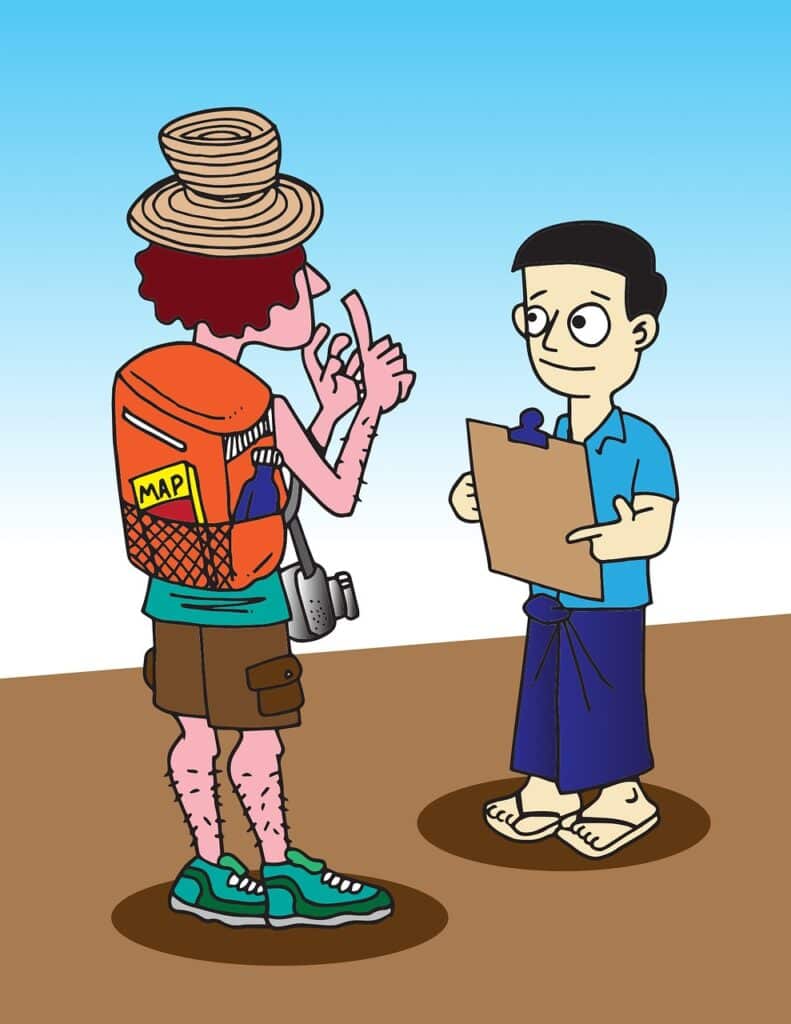
Others might insist on a “donation” for their supposed research, pressuring you into handing over cash.
How to Avoid It
- Politely decline random surveys, especially in crowded tourist areas.
- Keep your valuables secure and within sight at all times.
- Be wary of anyone getting too close or blocking your path while you answer questions.
Fake ‘Visa on Arrival’ Processing Fees
Many travelers rely on visa-on-arrival services when visiting new countries. But scammers have set up fake visa processing desks right inside airports, charging tourists outrageous fees for visas that don’t even exist.
These fake “officials” look professional, complete with printed forms, receipts, and even fake government stamps.
They tell travelers they must pay an extra fee for express processing, a new entry tax, or a “required” health insurance package. In reality, these fees don’t exist, and travelers who pay them get nothing in return.
To avoid this scam, research visa policies before arriving. Know exactly where and how visas are issued. If someone asks for a fee that wasn’t listed on the country’s official immigration website, it’s a scam.
Always look for official government counters, not random desks inside the airport.
Fake ‘Lost Tourist’ Travel Scam
Travelers love helping others, but scammers play on kindness by pretending to be lost tourists in distress. This scam typically happens in busy areas, like train stations, markets, or famous landmarks.
A well-dressed person—often carrying a fake map—asks for directions, appearing harmless and confused. While you’re distracted, an accomplice picks your pocket or swaps your bag with an empty one.
In some cases, the scammer drops their wallet in front of you and, when you bend to pick it up, they grab your phone or valuables.
To avoid falling for this trick, stay alert in crowded areas. If someone seems lost, offer help without letting go of your belongings. Be wary of strangers who try to prolong the conversation or get too close to you.
Sometimes, a simple act of kindness can turn into an expensive mistake.
‘Closed Hotel’ Scam
This scam plays on curiosity and politeness, so staying alert can save your wallet and personal information from being exploited.
You arrive in a new city, excited to check in, but a friendly local tells you that your hotel is closed, fully booked, or relocated due to an emergency. They offer to help by taking you to a “better” hotel nearby—except this hotel is overpriced, low-quality, and in on the scam.
This scam is common in countries with high tourist traffic, where scammers target travelers arriving late at night or without a local SIM card.
The replacement hotel may charge triple the normal rate, and the scammer earns a commission for every guest they bring.
To avoid this, always call your hotel directly if someone claims it’s closed or full. Use Google Maps or official websites to verify.
If a stranger insists on helping you find accommodation, politely decline and find your own way. Trust your booking confirmation, not random strangers.
‘Free Bracelet’ Travel Scams
A friendly street vendor approaches you with a big smile, offering a free bracelet, charm, or souvenir. Before you can refuse, they tie it around your wrist, insisting it’s a gift or a good luck charm. The moment it’s on, they demand payment, creating a scene if you refuse.
This scam is particularly common in markets, tourist hotspots, and historical sites, where scammers target visitors who don’t want confrontation. Some even work in groups, distracting you while an accomplice steals from your pockets or bag.
To avoid this, keep your hands to yourself when approached by vendors. If someone tries to place something on you, firmly say no and walk away. Remember: if something is truly free, you won’t be pressured to pay for it.
Rental car Travel Scams
You return your rental car without incident. A few days later, you receive a bill and a notice that your car was returned with dents, scratches, or otherwise damaged. You know you returned it in good condition.
What follows is a nightmare of arguing back and forth with the company.
You can avoid this by renting cars only from reputable car rental agencies. Take photos of the car before you take possession and after you return it. You can use these photos to prove that you returned the car in perfect condition.
Travel scams that can be avoided just by verifying the price beforehand
Travel scams are a fact of life when you are in an unfamiliar environment, especially in a foreign country. But there are ways to protect yourself to at least minimize the chances of falling prey to scam artists.
The first cardinal rule to avoid tourist scams is to always know exactly what something will cost before agreeing to purchase it.
If a price is clearly marked, you should be OK, but sometimes prices for many services or products are vague or not specified at all. This is a red flag alert for tourist scams. Below are five potential tourist scams or overcharge situations and how to avoid them.
When Ordering Food
You are in a nice restaurant. The server tells you about the mouth-watering specials, not on the menu but doesn’t mention the price.
You select the seafood special he describes, which is so good you want to stop strangers on the street and induce them to try it.
The bill arrives and you are shocked. It takes your budget for the next two days to pay for it. (This actually happened to me in Barcelona).

You could have avoided this by asking the server for the price of the special first and then deciding whether to order it or settle for something else at 1/4 the price.
You won’t look cheap or tacky asking for the price beforehand, even in an upscale location.
In any case, you will never see that server again so don’t worry about it.
The coolest hotel in Barcelona is Casa Fuster.
When Ordering Wine
Same concept here. The waiter comes to take your order and explains the off-the-wine-list selections available for pairing with your meal.
Simply ask to see the wine on the menu or ask the price straight out before you order it. Then decide if you want it or not.
Avoiding surprises makes for a more pleasant meal.
Transportation in Unfamiliar Locations
These are prime opportunities for tourist scams.
You flag a taxi, tuk-tuk, rickshaw, or any other vehicle. You get in and communicate your destination.
When you arrive, the driver quotes you some ridiculous price that you just know doesn’t sound right. There is little you can do but pay at this point.
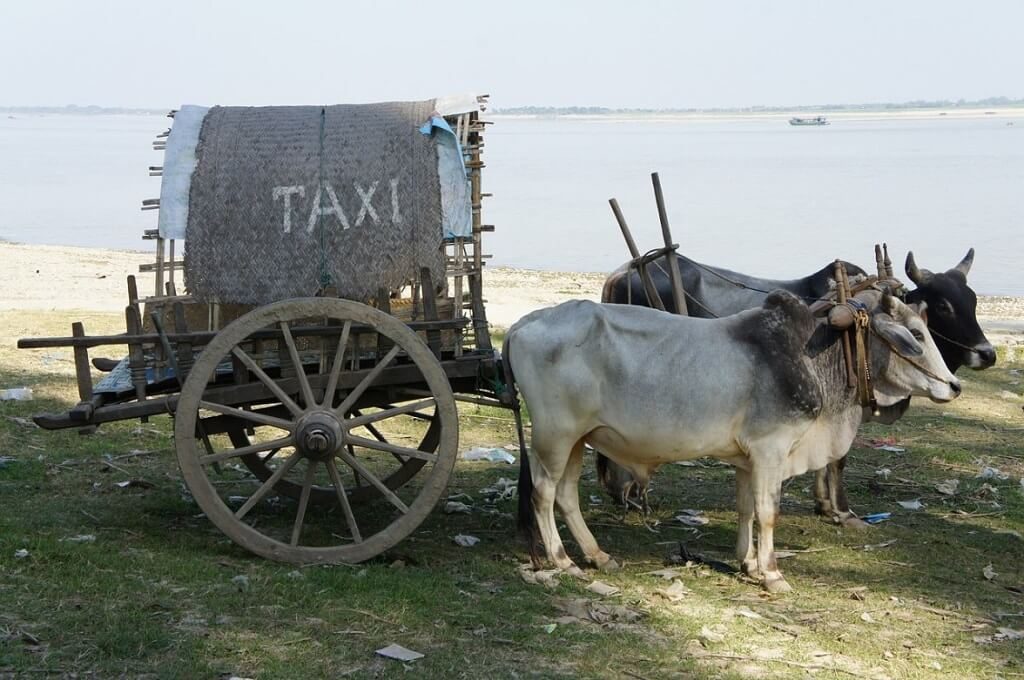
You need to agree on the price with the driver beforehand.
If language communication is an issue, have the address written down beforehand in the local language and show it to the driver.
If a taxi is metered, check and make sure the meter is turned on and if not, don’t be embarrassed to tell the driver to turn it on. Use hand signals if necessary.
Taking Tours
You see a very reasonable price for a tour you are interested in.
You take the tour and it’s really very nice. At the end of the tour, the guide tells you the price is per person, not per tour. There are five of you.
At this point, you can either pay and chalk it up to experience or engage in an uncomfortable situation with the provider.
Again, knowing the specific details of a transaction before agreeing to purchase will help you avoid unpleasant surprises.
Cultural Ceremonies or Shows
Here is a tourist scam that is popular in Beijing. You learn about a tea ceremony, traditional dance, or some other cultural event.
It sounds like fun and the admission price is not too bad, so you go. At the event, you drink some tea or a traditional drink.
At the end of the event, you are handed a bill for the advertised admission price plus an inflated price for whatever you had to drink.
Turns out the tea is a rare blend and the traditional drink is specially made just for this event.
These scams are especially hard to guard against.
Your best defense is to ask upfront if there are any other costs associated with the show or ceremony. If the answer is vague or iffy, stay away.

Foreign travel carries with it the possibility of walking into tourist scams, but this should not stop you from enjoying the pleasures of the traveling experience.
A little caution and foresight will go a long way to avoid the unpleasant surprises of travel scams. And remember…always confirm the price before you buy.
Tourist scams in Europe are common. Some cities are notorious for specific scams.
Here are some European travel scams that have been around forever. Just about everyone who travels has been exposed to some version of these.
Travel Scams in Europe
Rome – Woman Holding an Infant
You see a woman holding an infant. Fairly innocuous, right? Not necessarily. Here is one of the most amazing tourist scams I’ve ever seen.
My husband and I were walking down one of the streets leading to the Coliseum. A group of 4 or 5 women, one of whom was holding an infant, came toward us.
They looked like they could be up to no good, so we immediately moved away, saying “no, no.”

One of the women showed us a piece of cardboard with something written on it while another shoved the infant at us and made a distracting noise, like a whistle.
It is human nature to instinctively react to a baby being shoved in front of you and to look in the direction of an unusual sound.
We did both, but only for a split second. We moved the women out of our way and rushed in the opposite direction.
After a few minutes, one of the women ran up to us holding my husband’s passport. She handed it to him and walked away.
My husband had been wearing a windbreaker over a sweater. His passport was in the sweater pocket, which was zippered up.
These women had pick-pocketed him so deftly that he didn’t even feel them reaching under his windbreaker, unzipping his sweater pocket, and removing his passport within seconds!
We often speculate as to why she even returned it. It’s almost as if she were saying to us “Look how talented I am and what I can do to you!”
This was probably one of the most expertly executed tourist scams I’ve encountered in Europe.
Always be wary of unsolicited attention, although when thieves are as talented as these women were, it’s a challenge to protect yourself.
Rome – Dropped Keys on the Subway Travel Scams
I hate to pick on Rome, a great city. Unfortunately, it has a well-deserved reputation for travel scams.
This is a very common travel scam encountered during European travel.
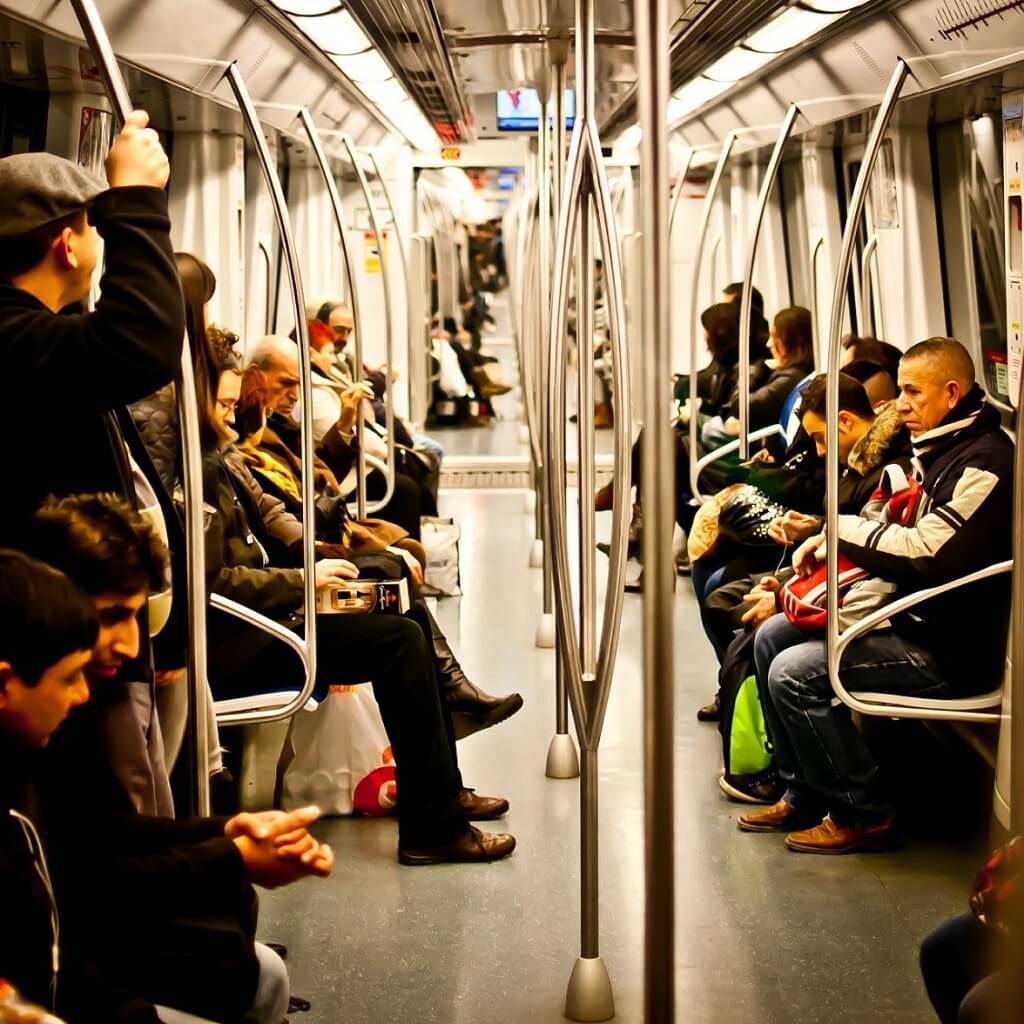
I was on the subway with my husband. We had our suitcases with us. The train arrived, the doors opened, and we entered.
We noticed a guy drop his keys on the train floor without getting on the train.
While the guy was pretending to retrieve his keys, he felt my husband’s ankles, apparently looking for an ankle bracelet with money, which my husband did not have.
All the while, my husband, suspecting a robbery, kept his hand firmly on his wallet.
The doors closed and the potential thief was left on the platform. His efforts were in vain.
I guess the keys were just a decoy because he just left them on the train.
Public transportation vehicles are ideal places for pickpockets.
The objective here is to pickpocket the victim just before the subway doors close, so there is little he can do once the train leaves.
Where to stay in Rome.
Moscow – Stolen Shoes Travel Scams
A colleague tells me this is one of the easiest tourist scams he knows of in Europe. He was in his hotel room and heard a knock on the door.
He opened it and saw a hotel valet who told him to leave his shoes outside the door for shining overnight. He did.
The next morning, no shoes. He called reception and asked what time his shoes would be delivered.
“What shoes?” they asked. Apparently, the hotel does not offer any overnight shoe-shining service.
He had to wear his running shoes to his meeting until he could purchase a new pair of dress shoes.
Confirm the identity of anyone who comes to your hotel door.
Amsterdam – The Unattended Briefcase
This happened to my husband. Schiphol, Amsterdam’s airport, is famous for travel scams. It is the place where, if something bad is going to happen on a trip, it is likely to happen here.
It just has that reputation. So whenever you land in Schiphol, you are on high alert. My husband knew this.
He arrived in Schiphol on a Hong Kong flight, exhausted and longing to check in to his hotel.
At the reception, he placed his briefcase on the floor for the briefest of instances while he completed the check-in process. When he reached down, the briefcase was gone!
The hotel immediately alerted security, who ran the security camera tape.
The tape showed a short, slim man draping his coat on the briefcase before picking it up and stepping outside the hotel through the revolving doors.
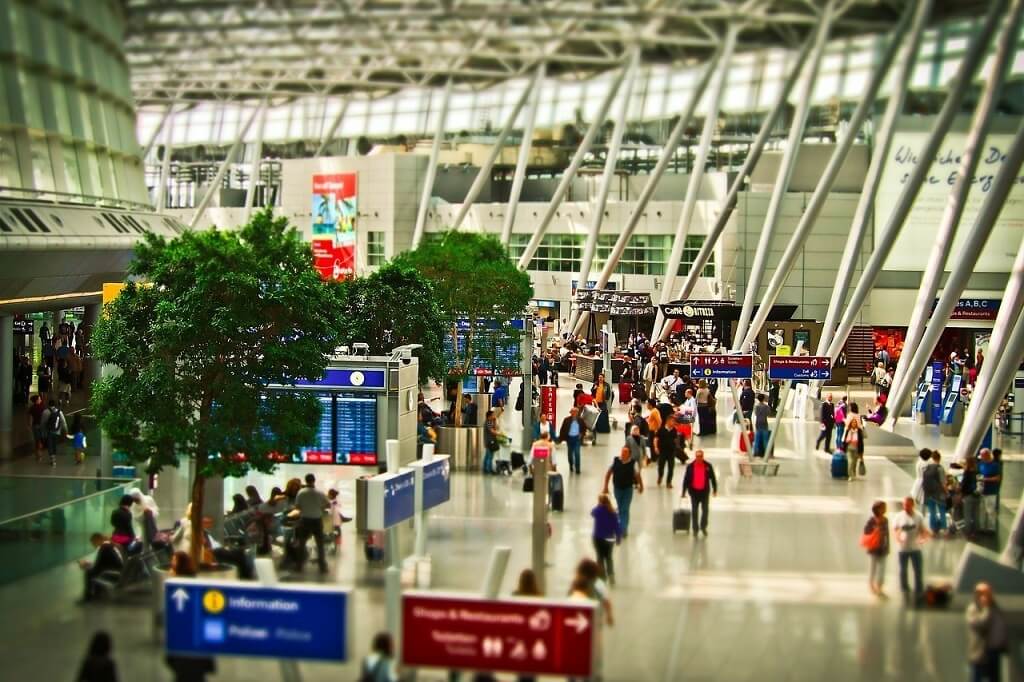
A few days later, the Amsterdam police advised my husband that some contents of the briefcase were found in a dumpster and they were returned… no, no valuables though.
The thief was never caught. These types of tourist scams in Europe and elsewhere are very common around hotels.
Keep your eye on your possessions at all times.
Paris – The Lost Motorist
In a very nice part of Paris, a motorist stopped us and asked for directions.
We responded as best we could, as we did not know the city well. He then started to sing the praises of the leather coats he had in the back seat and asked us to buy them.
We declined, and he began yelling insults at us in about four languages.
Do these types of travel scams ever work?! Who buys leather coats, on the spot, out of a sleazy guy’s back seat?
The best places to stay in Paris in all neighborhoods.
Palermo, Italy – The Independent Tour Guide
A minivan with a “City Tour” sign was parked close to our hotel. We approached and asked about the cost and what the tour entailed.
After a long and detailed explanation, the guide told us the cost was €60.00 per person. There were four of us.
We knew this was an outrageously high price and we walked away.
He pursued us and said the Hop-On-Hop-Off tour bus was also €60.00 per person, plus an additional €2.00 per person for the audio tour.
He was very persistent and claimed the bus didn’t show you half of what he could. And because we were so nice, he’d give us a discount.
Eventually, the price got down to less than half of the original quote. Still, we had grown suspicious and decided against his tour.
A few blocks away, we found the Hop-On-Hop-Off bus actually only charged €10.00 and no extra for the audio.
In these types of scams, the objective is for the scam artist to get you right out of the hotel before you’ve had the chance to explore options.
Try to explore options and prices for what you are looking for beforehand, so you know if you are being overcharged.
Prague, The Czech Republic – Wrong Change

We had dinner at a sidewalk café in the beautiful central square in Prague.
We paid the bill, but the change was wrong. We brought this to the server’s attention and it was corrected.
A day later, we had lunch there and the same thing happened. We met friends who told us the same thing happened to them.
Apparently, this place specializes in giving the wrong change to tourists in the hope they won’t notice because they are dealing with unfamiliar currency.
Let’s say they give the wrong change to 10 people, and 8 or 9 notice it. That means 10 to 20% don’t notice, and the waiter gets away with it.
Not bad odds. Confirm bills and count your change!
Madrid, Spain – The Rambunctious Kids
I had just withdrawn €300 during my lunch hour because I was going away for the weekend. I thought I’d have lunch at a little salad place, but I would buy a magazine first to read while I ate.
At the magazine stand, two young guys horsing around bumped into me.
When I got to the restaurant, I realized my wallet had been stolen. My thought is that I was followed from the bank, and the two guys distracted me while a third lifted my wallet.
I had to return to the bank for another €300. That was a very expensive weekend.
Never leave your money in a place where it can be easily retrieved, like a bag, backpack, or …heaven forbid…a back pocket.
Instead, use a money belt or secret compartment and make sure to divide your money into separate locations, so if it is stolen or lost, you have other stashes.
Europe does not have a monopoly on scams. Travel scams in Asia and Africa range from the ridiculous to the sophisticated. Here are some of my favorites.
The best Boutique Hotels to stay in Madrid.
Travel Scams in Asia and Africa
New Delhi – The Worthless Silk Print
A guide in India that we had been sightseeing with for two days offered to take us to a store specializing in Indian art on silk prints.
We arrived at a very swanky store and were taken to a private room where the clerk showed us lovely prints displayed in fine leather-bound folders.
We settled on two prints, $90 each.
Leaving New Delhi at the airport, we saw the same prints for about $2.00 each. Ouch!, That hurt. When I got home, I framed the fake prints and they are hanging in my hallway. What the hell!.
Be wary of guides that take you shopping and get a commission.
New Delhi – The Wrong Carpet Shipped
I bought two small carpets in New Delhi. The store agreed to ship them to me in the U.S.
When they arrived, one was what I had purchased, but the other was a vastly inferior product, probably worth a tenth of what I had paid.
This could have been an honest mistake. What do you think?
Insist on seeing your purchase packed if possible, although even that is no guarantee.
Beijing, China – The Ancient Tea Ceremony

This is one of the classic travel scams to watch out for. My friend, Amy, fell for this travel scam. She was in front of the Forbidden City in Beijing, looking at a map.
A guy comes up to her and asks, “Where are you from?”
Amy is a pretty savvy traveler wary of strangers asking this classic come-on question, so she just smiled and walked away.
The guy was persistent. “I’m from Shanghai here on business,” he said. Amy ignored him.
The guy continued making conversation until Amy asked him to please leave her alone.
Rather than complying, the guy appeared insulted and said he was just a businessman with a stopover in Beijing, trying to make conversation with a fellow tourist and not wanting to bother anyone.
Sometimes it’s tough to distinguish a genuinely friendly person from a scam artist.
The way Amy tells it, she felt bad for the guy and thought about how many times she was in the same situation in a strange city, wishing she could share the sights with someone.
She decided to chat and eventually agreed to go to a traditional tea house with the guy. Once there, they were taken to a private room and given an explanation of the traditional tea ceremony.
The guy selected a special blend of tea for his “sick grandfather,” but when he went to pay realized he had no money and showed Amy his empty wallet. Amy ignored this.
By now, she knew this was a con, but foolishly, she wanted to see how far this guy would go.
The attendant began ceremoniously pouring tea even though Amy said she didn’t want any, while the guy encouraged her to drink. She refused. She didn’t dish out a cent!
After about 20 minutes of this, the exasperated guy suggested they leave. He walked away as soon as they got to the street.
I told Amy she was lucky. She said her consolation is that she wasted the guy’s time.
The tea ceremony is a common travel scam in many parts of Asia. Tourists are lured to a traditional show where they observe an “ancient tea ceremony” and are then charged exorbitant prices for what they consume.
Confession: There was no “Amy.” I made her up because I was too embarrassed to admit this really happened to me. Obviously, I’ve gotten over it.
Lagos, Nigeria – The Exit Stamp
As in all countries, Nigeria stamps your passport at passport control once you leave the country.
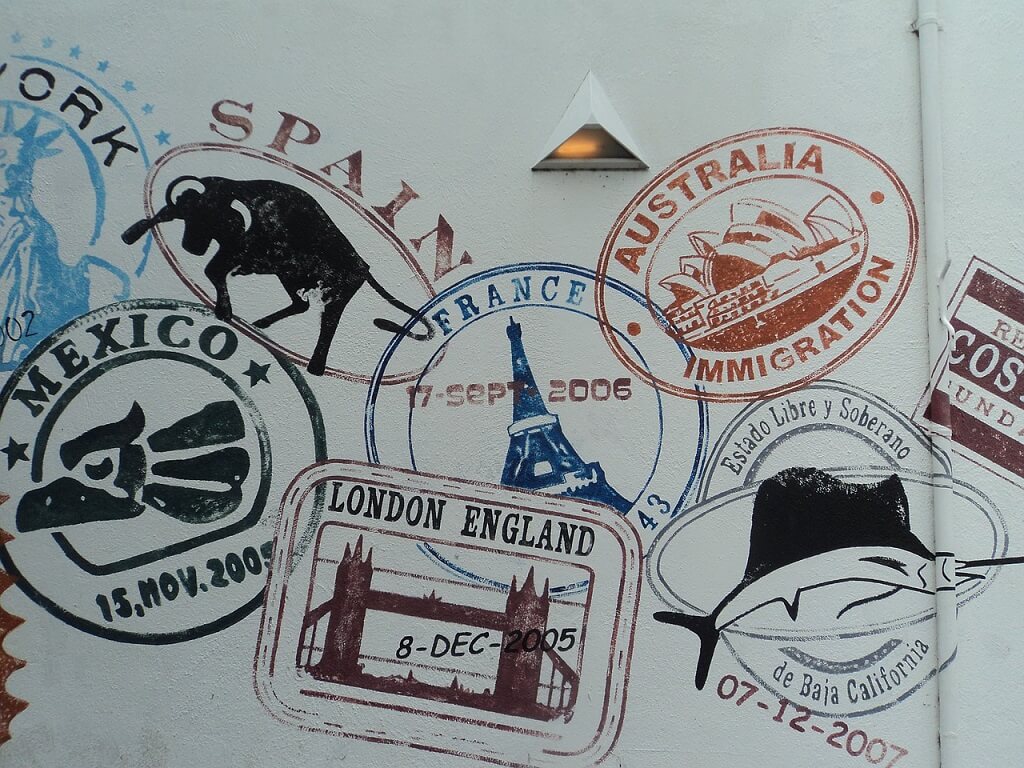
I had struck up a conversation with a nice guy at the airport and we went through passport control together.
When his turn came, the passport control clerk declared that my companion, who spoke no English, needed to get an additional stamp before he could leave.
The stamp could only be obtained in Kaduna State, several hundred miles from where we were.
I explained to my companion that the clerk was obviously trying to rip him off and suggested he offer the clerk the equivalent of about $20.00 to resolve the issue.
He did and was quickly on his way. You may not be able to avoid this one, but it is still one of the travel scams to watch out for.
Hong Kong – Worthless Currency
This one is truly a bizarre travel scam. We arrived in Hong Kong, and took a train into the city and a taxi to our hotel.
In the taxi, the driver asked us if we had the “new” currency. New currency? What new currency?
The driver explained that the national currency had just changed and the old one was now worthless.
As a favor, he would accept the old currency for the taxi ride. But if we gave him the equivalent of about US$100, he would exchange it for us into the new currency.
I still have no clue what that was about, but obviously didn’t give him anything above the taxi fee. I later verified that, indeed, there was no “new currency.”
It’s a shame these travel scams mar an otherwise idyllic trip.
Be aware and vigilant and you can at least minimize the damage. What you cannot do is NOT travel for fear of being scammed overseas.
The joys of travel far outweigh any possible scamming misadventure.
Here are a couple of theft-prevention travel accessories from companies that specialize in theft-prevention products.
Anti-theft crossbody bag for women. Anti-theft backpack Anti-theft wallet.
Share your travel scam stories to help other travelers avoid them. What are some of the most sophisticated travel scams you’ve ever heard of? Let us know in the comments.

Want to know more about travel scams both at home and abroad? Check out these manuals to stay up to date.

BTW, if you are getting ready for your trip, make sure to take advantage of these useful, money-saving links to book your trip:
- Research and book your flight with Skyscanner. I have found them to be the best because they list all airlines including the budget ones. You are always sure of having researched all options.
- For car rental around the world, Discover Cars has flexible pickup and drop-off options, I recommend Discover Cars.
- Book your accommodation with Booking.com. I find they have a wide selection and a nice, user-friendly, transparent website.
- Protect your trip and, more importantly, protect yourself with travel insurance. I use Travelinsurance.com and have been very happy with them.
- For more general tours to any destination or attraction, book with Viator. Check them out.
- Need a visa? Get your visa for all countries with Passport Visa Express.
- Looking for a cool walking tour to explore a city? My favorite walking tours are offered by Take Walks.
- Food and drink tours are the best way to enjoy a city. And Devour Tours are my favorite.
- Looking for a good VPN to protect your security, privacy and freedom online while traveling? Nordvpn is your best option.
- The best and most economical way to stay connected while traveling is with an Airalo eSIM.
I personally use, and can recommend, all the companies listed here and elsewhere on my blog. By booking through these sites, the small commission we earn – at no cost to you – helps us maintain this site so we can continue to offer our readers valuable travel tips and advice.






















